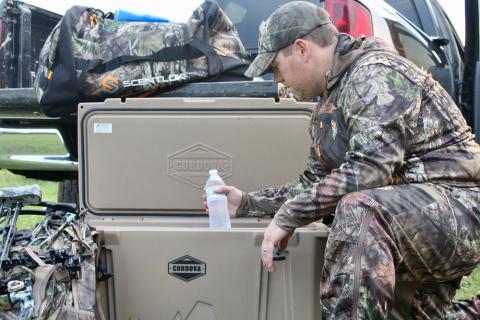Professional bass fisherman Greg Hackney doesn’t bass fish with a partner on the Major League Fishing circuit he’s fishing this year. However, in many of the other tournaments he’s fished in years past, including state, regional and national events, he’s fished with a partner.

I’ve fished hundreds of bass tournaments with a partner over the years. The number-one thing that you or your partner don’t need to do when fishing a team tournament is to compete with one another. As crazy as that sounds, I’ve learned that to be more effective in team tournaments, one partner needs to be the primary person to try and catch the bass, and the other partner needs to be his back-up. Pride causes more teams to lose buddy tournaments than any other factor.
The primary angler must do 80 percent of the work required to catch bass and win the tournament. His partner needs to do the work needed to win the tournament. Most of the time when a buddy tournament is happening on a lake where I’m fishing for bass, if I see two guys on the front casting deck, both casting and winding, then I know they’re not competing to win the tournament but rather are competing against each other.
The buddies must decide which angler will be the leader – the 80-percent guy. His buddy needs to do whatever he can to help the leader catch the bass the team needs to win the tournament. When a team lets one person catch 80 percent of the bass, and the other angler be the support person for the leader, then that team has a greater chance to win than if both men are on the casting deck attempting to beat each other.
For instance, the support person always needs to make sure the net is handy to land the bass. When the leader catches a bass, the support angler takes the bass off the hook, puts the bass in the live well and begins the culling process. This process enables the leader to fish most of the time the team is on the water and catch more bass.
Some teams will allow one angler to have charge of the boat and fish on the front deck for one-half of a day, and then the second angler do that for one-half of a day. However, I’ve observed that teams are far more successful in tournaments when only one angler spends 80-100 percent of his time trying to catch bass, and the second angler spends 100 percent of his time supporting the lead fisherman.
I’ve fished as the leading angler and also as the support guy. When I’ve been in the support position, I’ve tried to do everything I can to make that leading fisherman as successful as possible. All the guy on the front of the boat has to do is be totally focused on catching bass, and I’ve taken care of everything else. Then when I’ve been the lead angler, I’ve understood I’ve been fishing for both of us. I’ve realized I have to be very focused on what the bass are doing, what lures I need to use, what follow-up baits I need to have available if a bass misses my primary bait, and what equipment I possibly may use for that day at an arm’s length.
The guys who use this system of buddy bass tournament fishing generally are the teams that win these team tournaments. Always keep in mind that no matter who’s on the front end of a boat, or who’s the support person, once the bass tournament ends, the two of you will divide the money. Therefore, why not give your team the best opportunity to win the money? Remember, your half of the winning check doesn’t change whether you’ve caught all the bass or netted them. You’ll still receive half of what your team makes. Don’t let your pride blind you to what the goal of the team bass-fishing tournament is: for your team to win the tournament and get the biggest check there.



























